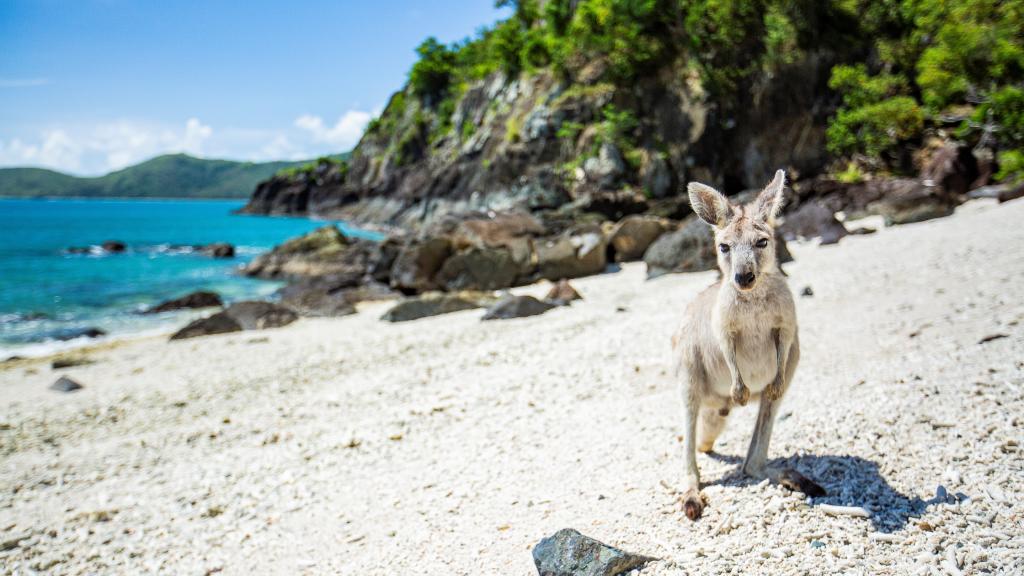
The minimum legal 'drinking' age is 18. Young people going to bars and discos should carry identification to prove they are 18 years old. They will not be let in otherwise. No one may buy liquor from a bar or liquor store (bottle shop) unless they are 18 years old. Buying liquor for a 'minor' is illegal.
All banks have automated teller machines (ATMs) accessible 24-hours a day, generally outside the branch or in the foyer. Check with your card issuer that your charge or account-linked credit card can be used in this way, and at which bank as none accept every brand of card.
The Australian dollar is divided into 100 cents. One and two cent coins are no longer in circulation, but many items in shops and supermarkets are priced in odd amounts, such as $1.97 or $9.99. The law provides that the TOTAL bill is rounded up or down to the nearest 5 cents. So $19.97 becomes $19.95, $19.98 becomes $20.00. Coin denominations are 5c, 10c, 20c, 50c $1 and $2. Notes are $5, $10, $20, $50 and $100, are colour coded and made from a plastic compound that will survive a wash or a swim.
Many of the Queensland Island are accessible from the mainland with connecting launch transfers or flights from major cities. Car rental companies do have depots at most gateways. Virgin Australia, Qantas and Alliance Airlines fly daily to the gateways. For more detailed information on getting to the islands please refer to the Getting There section of each island resorts website.
Australian health care professionals are highly trained and medical services are among the best in the world. Visitors from the UK, New Zealand and Finland are entitled to free or heavily subsidised medical and hospital care under reciprocal national health care agreements with the taxpayer funded Medicare organisation. All other visitors should take out travel insurance when visiting Australia. Several Australian-based travel insurers have special cover for visitors which are very much less expensive than travel cover sold in the US, for instance. Major hotels have doctors on-call.
Visitors who have a medical condition requiring treatment should ensure they carry a letter from their doctor outlining their condition and the medication required. This is also important if the drug is uncommon or contains narcotics, which may be a restricted import. Most medication is available in Australia, but only on a doctor's prescription. Prescription drugs are dispensed by qualified pharmacist at 'pharmacies' or 'chemist' shops.
Travellers cheques, especially in foreign currencies, are generally NOT accepted EXCEPT by hotels and big stores and tourist shops. These display a 'travellers cheques welcome' sign. Cash your cheques at a bank or Bureau de Change to ensure you have enough spending money. The same holds true for foreign currency, which is not generally accepted by Australian businesses and shops.
No service charge applies in Australia. Tipping is not mandatory but a 10% tip in restaurants and hotel bars is normal for good service.